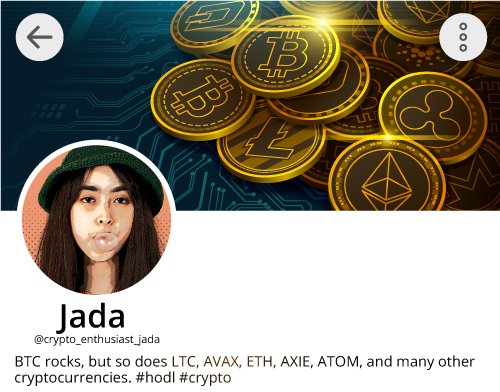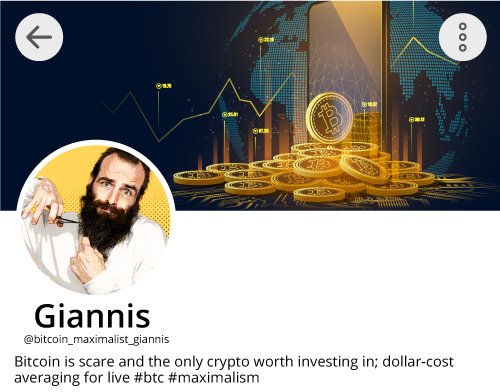Bitcoin maximalism is the belief that Bitcoin will become the only valuable cryptocurrency in existence. Bitcoin maximalists argue that Bitcoin is absolutely unique from other cryptocurrencies because of its capped supply. Maximalists say that other coins are willing to tamper with the core attributes that make Bitcoin valuable, like scarcity and decentralization.
If you haven’t been a party to or an observer of the ongoing debate over Bitcoin maximalism, head on over to Twitter.
Case in point:
|
In one corner is Jada, BTC enthusiast |
VS |
In the other corner is Giannis, BTC maximalist |
During a Twitter beef, Giannis claims that Bitcoin is the only cryptocurrency worth anything at all, prompting a lengthy rebuttal from Jada.
Giannis strikes a nerve with Jada, citing:
“Scarcity is a central tenet of Bitcoin maximalism. There is only one blockchain with 21 million Bitcoins. Other coins dilute the value of Bitcoin by competing with it for market share.”
To which Jada smartly replied:
“If other coins dilute the value, you’re implying Bitcoin could eventually become worthless. I do not believe Bitcoin will become worthless, even though there will only ever be 21 million Bitcoin. Bitcoin will likely remain dominant; a few altcoins will have a place in the cryptocurrency economy and are worth investing in though.”
Bitcoin maximalism is rooted in three principles: scarcity, security, and decentralization. In Giannis’ view, when one looks at the tenants of all three principles, as a maximalist, Bitcoin is the only cryptocurrency worth investing in. In
Both may have a point.
So why is Bitcoin so valuable?
 It’s not just the scarcity of Bitcoin that makes it so valuable, but also its security and decentralization. By maintaining a decentralized network and processing transactions on-chain, there is no single point of failure and no centralized authority with control over users’ funds.
It’s not just the scarcity of Bitcoin that makes it so valuable, but also its security and decentralization. By maintaining a decentralized network and processing transactions on-chain, there is no single point of failure and no centralized authority with control over users’ funds.
If scarcity, security, and decentralization are the principles that make Bitcoin unique, in a maximalist’s point of view, when a coin comes along that works to tamper with scarcity, security, or decentralization – like Ethereum Classic (ETC) – it enters into competition with Bitcoin. If enough coins try to take on Bitcoin in each of these areas, then the value will naturally flow out of Bitcoin and into the altcoins with higher market share, all else being equal.
So when Ethereum made a decision to fork in order to restore ~$300 million dollars of investor’s money that were frozen by a hacker, many people were outraged because it goes against one of the core tenants of decentralization. It also signaled Ethereum’s willingness to compete with Bitcoin by creating a value proposition that includes both scaling and security, two things that Bitcoin is currently struggling with.
In this sense, when a coin comes along that improves on Bitcoin in any way, it does in fact becomes a competitor to maintain market share.
Can the same argument of scarcity be applied to gold?
 Consider the following argument: in its current state, Bitcoin is both scarce and immutable. Therefore, it is more valuable than anything else in existence because of these two properties alone. This argument can be countered with a few others, but they all rely on the idea that scarcity alone is not enough to justify value.
Consider the following argument: in its current state, Bitcoin is both scarce and immutable. Therefore, it is more valuable than anything else in existence because of these two properties alone. This argument can be countered with a few others, but they all rely on the idea that scarcity alone is not enough to justify value.
There have been numerous debates over the last decade about how much gold is theoretically left to mine in the world, for example, and what impact that could have on our monetary system.
If scarcity was enough, then gold would be the most valuable thing in the world. However, in a prospective scenario where there will be a global collapse and all fiat currency ceases to exist within a few years, gold would become an impractical unit of exchange. It takes effort to find, extract, purify and transport it – regardless of how much or little one has.
In other words, it’s an impractical unit of exchange due to the fact that you need a system to make all this happen.
Moreover, if society was reliant on gold as a medium of exchange there would be a large enough disparity in individuals’ ability to secure it that it would prevent any sort of fluid commerce from happening. While this would be an extreme example, the point isn’t that gold can’t be used as money – it’s actually historically been one of the most enduring forms of money. However, if you look at why people use gold today (e.g. jewelry) it has nothing to do with its properties as a medium of exchange and more to do with its properties as a store of value.
And, if no one is actually using something as a medium of exchange but it’s being used as a store of value all the same, then it’s not really fulfilling any sort of useful economic role. This is where Bitcoin maximalists have their argument break down: scarcity alone isn’t enough to justify something as a medium of exchange.
But, as mentioned above, scarcity isn’t really why gold is being used as a store of value today – it’s just the most salient point on the curve that represents the opportunity cost of using something else as money. For example, if you assume that fiat has an infinite lifespan and someone tried to argue that it’s more valuable than gold, the counter could be something like this: fiat is both infinitely divisible and can be created at will.
So what gives fiat value?
If you take away the above two properties from fiat (being infinitely divisible and created, as well), then what gives fiat value?
Well…nothing, really – it would just be paper; not much different from monopoly money.
So, the next time you read an article about why Bitcoin is going to revolutionize everything, take a look at what they’re saying and think to yourself: would this argument also apply if fiat didn’t exist? If it doesn’t, then the author probably won’t address that scenario in order to avoid exposing their argument as absurd.
While Bitcoin is clearly more secure than fiat, that’s actually only one of the four properties that make something better as a medium of exchange.
None of this is to say that Bitcoin doesn’t have value – it obviously does. Rather, it’s just to point out that people can’t be talking about why Bitcoin is valuable without also talking about why fiat isn’t.
Micro vs macro claims of Bitcoin maximalism
 Depending on how you look at it, Bitcoin maximalism is either a micro claim about the utility of specific cryptocurrencies or a macro claim about the future of all cryptocurrency.
Depending on how you look at it, Bitcoin maximalism is either a micro claim about the utility of specific cryptocurrencies or a macro claim about the future of all cryptocurrency.
And depending on which way you look at it, Bitcoin maximalism may indeed be an indisputable truth if you think that only one coin will exist in the future – like Giannis in our twitter debate example.
However, if you think that other coins will exist in the future then it becomes a very contentious claim since the other coins fulfill specific niches. For example, Litecoin is faster to transact with than Bitcoin and has more coin supply than Bitcoin – so it’s arguably better for being used as money. And this isn’t even considering other privacy coins that are beginning to become popular.
There is also the argument for coins being better at providing certain features than Bitcoin, such as Ethereum being able to offer smart contracts – which are currently being tested by over 70 companies including JP Morgan, Microsoft, Mastercard, and Wipro. So if you think that the future of cryptocurrency is going to be one where multiple coins exist simultaneously, then Bitcoin maximalism is unlikely to be an indisputable truth.
And that’s the truth.




